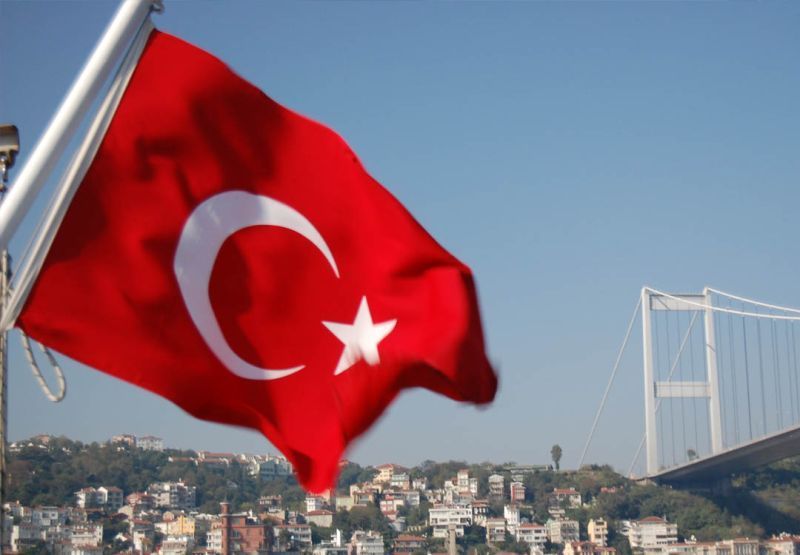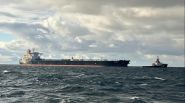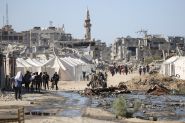- Home
- Middle East
- Turkey: A Global Power Broker

©This Is Beirut
From Ukraine to Syria, including Iran, Turkey has emerged in recent years as a pivotal diplomatic force, multiplying its mediation efforts across a spectrum of regional crises. This active, multi-front diplomacy serves both to safeguard its national security and to solidify its position as a key player on the global stage.
Turkey’s strategic geography, at the intersection of Europe and the Middle East, makes it a natural bridge at the heart of the Mediterranean basin. Its control over the Bosphorus and Dardanelles straits grants it additional leverage, enabling regulation of maritime traffic between the Black Sea and the Mediterranean.
Once a dominant world power under the Ottoman Empire, Turkey has long sought to reclaim international influence following the empire’s dissolution – a drive that has become particularly pronounced under President Recep Tayyip Erdogan, who has been in power since 2014.
A Vital Mediator in the Ukraine War
From the onset of the war between Russia and Ukraine, Turkey maintained open lines of communication with both sides – avoiding, unlike most European powers, the rigid polarization of the conflict. This unique positioning quickly elevated Ankara as a natural host for the first rounds of negotiations in March 2022.
Although a NATO member, Turkey has consistently maintained dialogue with Moscow, on which it remains economically reliant, particularly for natural gas. It refused to join Western sanctions against Russia, while still condemning the invasion of Ukraine. This carefully calibrated stance has earned Ankara the trust of the Kremlin.
At the same time, Turkey has maintained strong ties with Ukrainian President Volodymyr Zelensky. It played a central role in brokering the July 2022 Black Sea grain deal – a crucial agreement for global food security and a clear demonstration of Turkey’s diplomatic leverage. Ankara also successfully mediated prisoner exchange negotiations between Kyiv and Moscow. In parallel, it has supplied Ukraine with military equipment, including its domestically produced Bayraktar TB2 drones.
This delicate balancing act stands in sharp contrast to the European approach, where most governments have largely avoided direct dialogue with Russia. As a result, Istanbul has emerged as a key venue for high-level talks between both sides. A third round of negotiations is scheduled for this Wednesday, under the leadership of Turkish Foreign Minister Hakan Fidan and intelligence chief Ibrahim Kalin. Previous sessions, held in May and June, led to agreements on prisoner exchanges and the return of fallen soldiers’ remains.
Turkey in Syria: Both Mediator and Key Player
In Syria, Turkey has positioned itself not only as a military power pursuing a strategic objective to push Kurdish forces away from its borders, but also as a pivotal supporter of the Syrian opposition. At the same time, Turkey has played a leading role alongside Russia in mediating between opposition groups and the Assad regime, culminating in a ceasefire agreement in March 2020.
Ankara has cultivated a close alliance with Hay’at Tahrir al-Sham and its leader, Abu Mohammad al-Joulani, who later assumed the role of Syria’s transitional president. This relationship has significantly enhanced Turkey’s political and military influence in Syria, establishing it as an indispensable interlocutor in all international discussions concerning the country’s future. Having strongly advocated for the lifting of sanctions, Turkey has actively participated in negotiations over Syria’s political transition – most notably contributing to the ceasefire agreement between Syria and Israel brokered with the involvement of the United States, Turkey and several Arab states.
Turkey’s objectives in Syria are twofold: to prevent Kurdish autonomy along its southern border and to promote stability that enables the return of Syrian refugees from Turkey, while ensuring the preservation of Turkish influence in the country.
Discreet but Influential Diplomacy on the Iranian Nuclear Issue
For several years, Turkey has sought to ease tensions surrounding Iran’s nuclear program by maintaining dialogue with both Tehran and Washington. Despite regional disputes with Iran, particularly over Syria, Ankara opposes Western sanctions and remains committed to diplomatic engagement.
While Iran and Turkey are sometimes regional rivals, they share strategic interests, especially in managing the Kurdish minority spanning their borders. Their economic ties are substantial: Iran supplies natural gas to Turkey, while Turkish businesses operate in Iranian sectors such as textiles, agribusiness and construction. Political instability in Iran would have direct repercussions for Turkey – an outcome Ankara is determined to prevent in order to preserve stability along its borders.
Within this framework, Istanbul is hosting talks this Friday between Iran and France, the UK and Germany. On June 21, during a session of the Organization of Islamic Cooperation (OIC), Erdogan called for a resumption of US-Iran nuclear negotiations, positioning Turkey as a mediator. “Our region cannot afford another war,” he said, emphasizing that “what we need is sound judgment and prudence. I reiterate that the solution lies in diplomacy and dialogue, and Turkey stands ready to take responsibility, including by facilitating dialogue.”
Turkey’s diplomacy was particularly active early in the conflict, notably after the Israeli strike on the Iranian consulate in Damascus, when Ankara acted as a channel between Iran and the US to manage Iran’s response.
Beyond these examples, Turkey has pursued influence across multiple fronts, including Libya, Sudan and Palestine. These efforts reflect a clear ambition: to establish Turkey as an indispensable regional and global power, independent from traditional international blocs. Ankara seeks to serve as a relatively neutral bridge between conflicting parties while safeguarding its strategic interests.
Read more



Comments